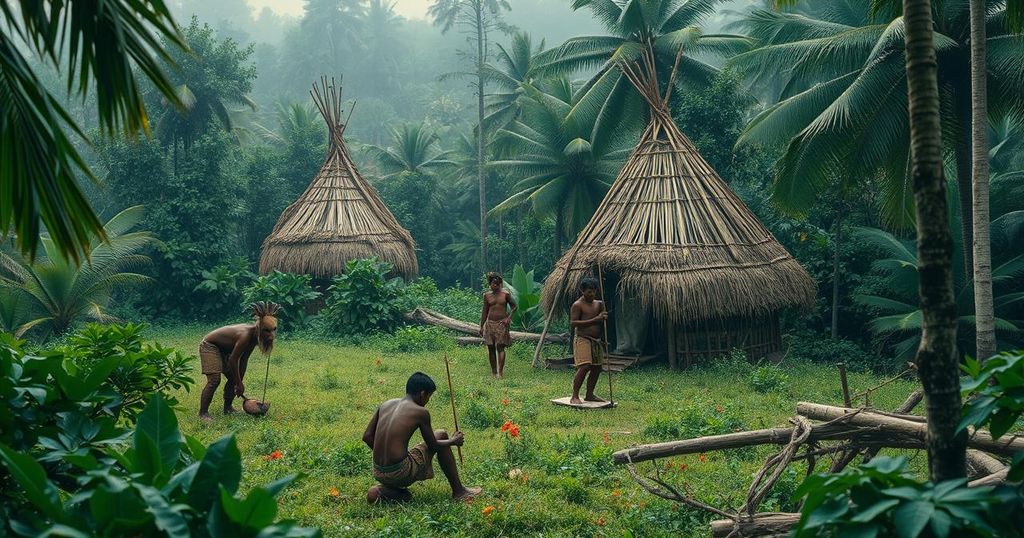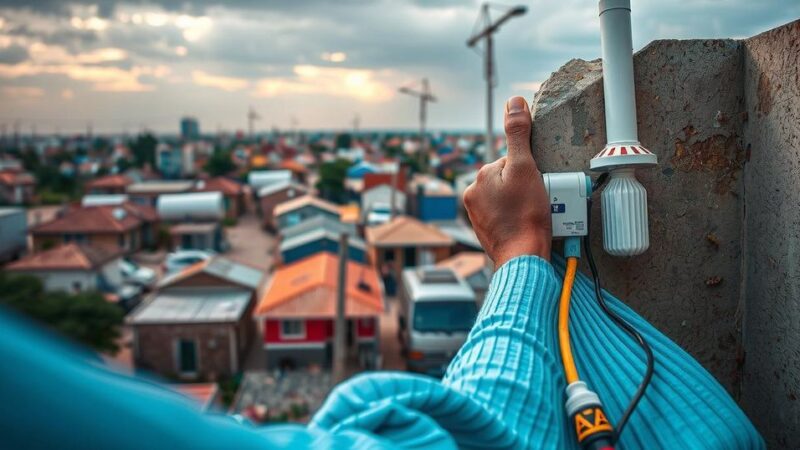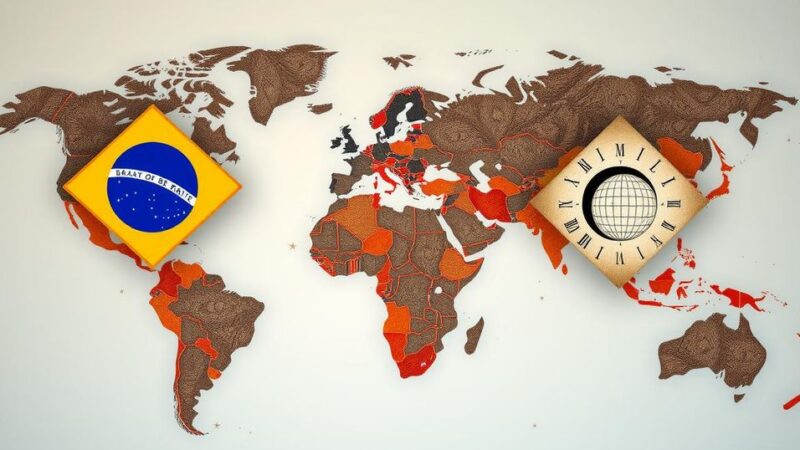An isolated tribe recently emerged from the Amazon, leading to the first contact since 1996. This event, prompted by fear of violence from outsiders, highlights the misconceptions surrounding uncontacted tribes, as they are often aware of the external world and its dangers. Historical impacts of contact have resulted in deadly consequences for these communities, with diseases claiming many lives. The current health risks post-contact necessitate a careful approach to future interactions, emphasizing protective strategies to ensure the tribes’ survival amid external threats.
The recent emergence of an isolated tribe from the Amazon rainforest has raised critical questions regarding contact with uncontacted groups. On July 1, Funai, the Brazilian agency responsible for indigenous affairs, announced that seven members of an isolated tribe had made peaceful contact with villagers near the Peruvian border. This incident marks the first official encounter with such a tribe since 1996. Reports suggest that the tribe, driven by fear rather than a desire for interaction, was fleeing from violent assaults by outsiders accused of being illegal loggers and drug traffickers. Despite being perceived as completely isolated, these tribes often possess knowledge of the outside world, having faced situations that compel them to seek assistance. The historical context indicates that current uncontacted groups have endured traumatic experiences with outsiders, leading to a pervasive fear, manifesting in hostilities and reluctance to engage. Medical and missionary interventions in the past often exacerbated their situation by introducing diseases which they lacked immunity to, resulting in devastating population declines. In an alarming turn, shortly after their contact, some of the tribe members reportedly contracted the flu. New strategies are proposed for contacting these isolated peoples safely, emphasizing that contact should be initiated under controlled circumstances, with medical support provided to mitigate the risks associated with exposure to outside pathogens. The situation underscores a lack of international protocols to protect these tribes, revealing systemic deficiencies within agencies tasked with their oversight. Without decisive action, there is a real concern that these isolated communities may face extinction due to ongoing encroachments from external interests. Thus, a comprehensive strategy involving both Brazil and Peru is essential to safeguard the future of these vulnerable groups.
The existence of uncontacted tribes has become a pressing issue as external pressures from illegal logging, drug trafficking, and industrial development threaten their survival. These tribes have a history of past interactions, yet they are often portrayed as living in a state of complete isolation. In fact, many have confronted violence from outsiders, resulting in generational fears passed down through oral traditions. The events in Acre highlight the complexities surrounding these tribes; while they may have knowledge of the outside world, they have often chosen isolation as a means of self-preservation. Moreover, historical precedents show that contact with outsiders has often resulted in catastrophic consequences for these peoples. The recent incident and subsequent health concerns regarding viral exposure illuminate the urgent need for protective measures and responsible engagement with these communities.
The encounter of an isolated tribe with the outside world suggests a troubling continuation of patterns where contact is fraught with peril, often leading to detrimental outcomes for these vulnerable groups. The fears that drive tribes to seek contact often stem from violence and trauma inflicted by outsiders, underscoring the necessity of careful management of such interactions. Current observations indicate an alarming trend of disease transmission following contact, which may threaten the very existence of these tribes. It is imperative that both Brazil and Peru adopt transparent and proactive measures to ensure the protection of isolated communities. The future of these tribes rests on a nuanced understanding and strategic engagements that respect their choice of isolation while safeguarding them from external threats.
Original Source: www.bbc.com







